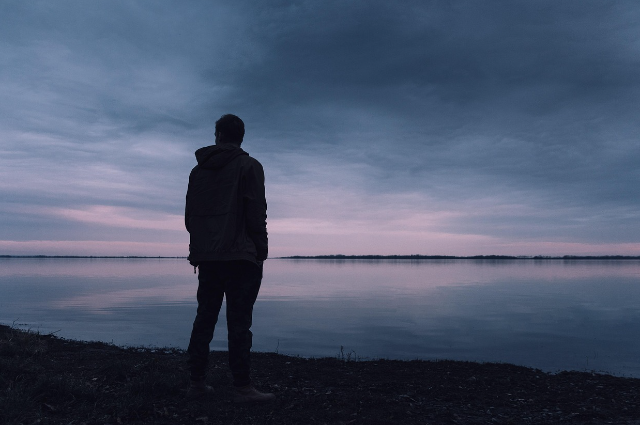
Imagine it’s midnight. And your phone glows in the dark. You’ve scrolled through every app and watched every reel. And still feel that strange emptiness in your chest. You check your messages. There are no new notifications. You tell yourself you’re fine, but the silence is louder than ever. What's that quiet ache? It’s nothing but loneliness.
Everyone feels it. Some people decide to hide it behind smiles, while some drown it in noise, and some joke about it online. But what if loneliness isn’t just a sad space? What if it’s actually our generation’s secret weapon? A strange kind of superpower we’ve been too afraid to understand?
Because maybe loneliness isn’t just isolation. Maybe it’s the first step toward self-awareness, creativity, and a genuine connection.
The Age of Connection and Disconnection
We’re living in the most connected era in human history. With a few taps, we can reach anyone and anywhere. We’re surrounded by conversations, updates, and endless content. And yet, we’ve never felt more alone.
Our phones have made communication effortless, but it also made the connection shallow. We know what everyone is doing, but not what anyone is feeling. We can comment “love this” on someone’s photo but not remember the last time we looked them in their eye.
Loneliness today isn’t about being physically alone. It’s about being emotionally unseen. It’s what happens when our connections become screens instead of souls. And maybe that’s why it hurts. Because our hearts were built for depth, not display.
The Hidden Gift of Loneliness
Yes, loneliness feels painful. But that pain isn’t always the enemy; sometimes it’s a signal too. It tells us something important is missing.
When you sit alone, without any distractions, the world finally quiets down. It gets silenced enough for you to hear yourself, your thoughts. That’s the beginning of reflections. That’s when you start asking the hard questions of yourself. Like, who am I when no one’s watching? What do I really want?
Artists, writers, and thinkers throughout history have known this secret. Their best ideas came not from crowds but from solitude. Loneliness forced them inward, and in that silence, they found creativity, clarity, and meaning.
Maybe that’s what loneliness does to all of us. It strips away the noise and the pretending and leaves only the truth. It’s uncomfortable, but it’s real. And maybe “real” is what we’ve been missing all along.
The Fear of Being Alone
We’ve been taught to fear being alone. Society calls it “sad,” “pathetic,” or “depressing.” We chase someone's company not because we want a connection, but because we’re terrified of silence.
When plans get cancelled or friends grow distant, panic sets in us. We start wondering what’s wrong with us. But loneliness doesn’t mean something’s wrong with you. It means something inside you is ready for attention, your own attention.
Being alone and being lonely aren’t the same thing. Being alone can be peaceful. Loneliness is just the bridge that leads to that peace. Only if we stop running from it.
Learning to Use It
What if, instead of fighting loneliness, we learn from it? What if we let it guide us toward something really deeper?
Loneliness can teach you how to sit with yourself. Like really sit, without any noise, without escape. It can help you see what actually matters to you. It can push you to create, to reflect and to grow.
It can also teach you how to connect differently. When you’ve faced your own loneliness, you stop chasing shallow bonds. You crave authenticity. You stop settling for people who half-listen or half-care for you. You choose depth over numbers, truth over noise.
And in that choice lies power. The power to be alone without being broken, to be self-aware without being selfish, and to love others without losing yourself.
The Strength in Solitude
Once you make peace with solitude, everything changes. You no longer beg for attention because you’ve learned how to give attention to yourself. You no longer fear silence because silence becomes your sanctuary.
Solitude makes you emotionally independent. It builds inner strength that no relationship, friendship, or validation can replace. It teaches you how to enjoy your own company. How to create, to think, to dream without waiting for someone else to join in.
That’s not loneliness anymore. That’s power. That’s the kind of peace that can’t be taken away.
The Silent Revolution
Our generation is often labelled “the loneliest,” but maybe that’s not a tragedy. Maybe it’s a transformation. Maybe loneliness is the price we pay for waking up.
We’re realising that connection isn’t about constant interaction. It’s actually about meaning. We’re learning to rebuild relationships from truth, not just convenience. To choose silence when the world gets too loud. To find comfort in our own company instead of fearing it.
Maybe loneliness isn’t destroying us. Maybe it’s shaping us. Maybe it's forcing us to grow, to feel, to rediscover what being human really means.
The Bottom Line
What if loneliness isn’t a flaw, but actually a teacher? What if it’s not the shadow we run from, but the mirror that shows us who we truly are?
When you stop fearing loneliness, you start transforming it. It becomes a reflection. It becomes a strength. It becomes self-understanding.
Maybe that’s our generation’s secret superpower, the ability to turn isolation into introspection, silence into creation, and emptiness into self-love. Because once you learn how to be at peace alone, no one can ever take that peace from you again.
References
